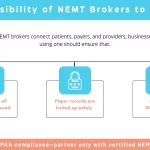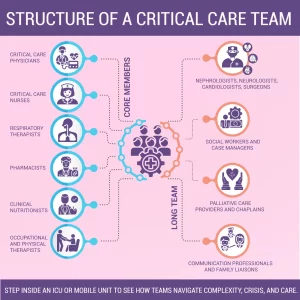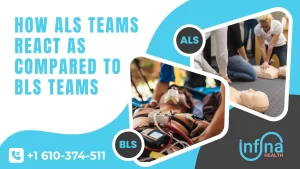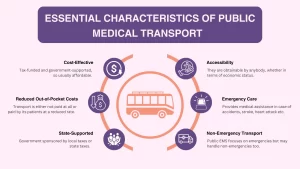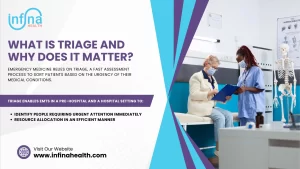How a Philadelphia Private Medical Transport Service Decreases Mortality Rates
One of the least considered, but most important barriers to healthcare in the United States is transportation. In such cities as Philadelphia, patients with chronic illnesses, mobility issues or who need urgent medical attention are usually not able to arrive at their appointments or at the hospital on time. The result? Miss appointment, late diagnoses, failure to comply with treatment regimes, and, in the worst of scenarios, increased mortality rates.
It is here that a personal medical transportation service is a very critical lifeline. These specialized medical transport services, opposed to the ordinary public transportation, are meant to provide safe, reliable, and timely services to healthcare facilities. Since emergency medical transportation is needed in life-threatening cases, whereas NEMT is used by Philadelphia patients to check up regularly, the importance of such services is difficult to overestimate.
Today, we will discuss in this article how private medical transportation contributes to higher survivability rates directly, better patient results, and long-term healthcare advantages to people throughout Philadelphia and Pennsylvania.
A Barrier to Healthcare: Transportation Issues in Healthcare
To reach the hospital or clinic is not as easy as hailing a cab to many people. National Institutes of Health (NIH) studies indicate that transportation barriers directly cause increased mortality rates. Meanwhile, when patients are unable to receive timely care, they fail to receive early interventions, and their conditions worsen, and death can be avoided.
Typical health care transportation issues are:
- Issues of mobility among disabled patients or those with chronic illnesses.
- Obstacles to access to healthcare in non-Philadelphia rural or underserved areas.
- Absence of affordable, reliable and wheelchair-accessible medical transportation.
- Relying on friends or family to drive them, which causes most medical visits to be missed.
The barriers underscore the need to treat healthcare transportation services as an important element of population health policies.
The Transportation-Mortality Rate Connection

Paramedics providing urgent pre-hospital medical care in Philadelphia
The absence of a doctor visit may appear something minor but actually, it can result in:
- Late diagnoses of some chronic or acute situation.
- Lapses in adhering to treatments particularly in conditions such as cancer, diabetes, or heart disease.
- More frequent hospital re-hospitalization because of untreated complications.
It has been found out to be directly correlated with patient survival rates where early access to care is concerned. While, during the emergencies, the value of fast medical response is highlighted by the notion of the Golden Hour in emergency medicine. So, the first hour after injury when life-saving measures are most effective. It is in most cases that the window is missed without effective urgent care transport or quick response medical transport.
Why Philadelphia Should have a Medical Transporting Service
Philadelphia is a city with world-renowned hospitals and medical facilities, but many people cannot enjoy their services due to poor access to transport. Patients who require specialized care cannot always rely on public transit, whereas standard taxis or ride-hailing services cannot accommodate an urgent medical case.
This gap is filled by a private service in Philadelphia that provides a medical transport service that is private.
- Available non-emergency alternatives to ambulances.
- Facilities to facilities transfers.
- Patients who are stable and yet in need of any help and need hospital discharge transportation.
- Medical ride services led by trained personnel to be safe and comfortable.
These providers are actively lowering the death rates and enhancing the health of the community by increasing the accessibility of Philadelphia healthcare services.
Emergency Medical Transportation: Lifesaving in Real-Time
Every second is important when an emergency hits. Such emergencies as heart attacks and strokes need to be addressed urgently. A Philadelphia emergency transports guarantee:
- The response time on emergencies is reduced.
- Pre-hospital care services are offered to patients on their way to the hospital.
- Life-saving interventions are provided in time.
- To the residents of Pennsylvania, these services can spell the difference between life and death.
In contrast to the general option, private medical transportation is planned so that it could be fast, safe and accurate in critical situations.
Philadelphia Non-Emergency Medical Transportation
Flickering lights and sirens do not have to be needed by all patients. A lot of them require regular, dependable rides to:
- Dialysis, chemotherapy or specialist visits transportation.
- Checkups of chronic disease management.
- Follow up visits to hospital.
In this case, the services of non-emergency transportation Philadelphia PA come in, as they make sure that patients, even those that are not in crisis, still have a continuity of care. Meanwhile, the frequent visits avert the deterioration of conditions, and, thus, the emergency interventions decrease in the future.
Therefore, these services decrease the chances of a long-term mortality by reducing missed appointments and the provision of support in adherence to treatment.
Relieving Stress and Enhancing Quality of Life
Medical care is not simply survival but also quality improvement of life of patients and their families. Taking public transport or hiring transportation is a stressful and unpredictable activity. People are guaranteed of:
- Reduction of stress and anxiety among the patients and caregivers.
- Heightened confidence in individual patient care.
- A feeling of autonomy and self-esteem in the people with mobility challenges.
This emotional support is crucial to both physical and mental health, and it affects the results.
Do not allow transportation to be a threat to your health.
Hire a professional private medical ride service in Philadelphia and guarantee the promptness with which you can receive the care that you are entitled to.
Book a Medical Ride with Infina Health
The Cost in the Private Medical Transport Services
Most individuals believe that hiring a private medical vehicle is far too costly. Nevertheless, medical transport cost Philadelphia patients can spend on is usually cheaper than repeated hospitalisations linked to lapsed healthcare. The cost considerations are important, and they include:
- Cheap medical transport services on short journey.
- Privacy vs. publicity of medical transport.
- Insurance to cover medical transportation.
Such specialized solutions as wheelchair-accessible medical transport or specialized medical vehicles.
Case Studies: The Way Transportation Enhances Results
There are quite a number of practical examples of how effectively healthcare transportation services can be:
- Cancer Patients: With the provision of patient transportation services to chemotherapy, the service providers increase the number of treatments adhered to, thus enhancing the chances of survival.
- Patients of the elderly: Geriatric patients will receive hospital discharge transportation since they have mobility issues that decrease the risk of complications and hospital readmissions.
- Rural Patients in Pennsylvania: Living outside Philadelphia can be a limiting option. Local medical ride services are used in linking rural residents to the city hospitals and they help in ensuring healthcare equity and inclusion.
Professionalism and Safety: The Difference of Private Medical Transport
A professional medical ride service does not only provide a ride:
- Medically trained personnel guarantee medical assistance on travel.
- Special medical cars are furnished with emergency or comfort of the patient.
- Individual patient care needs are provided with services.
This combination of expertise and compassion empowers the healthcare ecosystem of Philadelphia.
The Reduction of Mortality Rates by Private Medical Transport: Overview
In summary, the mortality in Philadelphia is lowered by private medical transport services by:
- Making sure that care is accessible at the right time both in an emergency or during regular check-ups.
- Lessening the problem of transportation in the healthcare system that results in late or missed care.
- Facilitating compliance and follow-through.
- Offering pre-hospital care services and lifesaving interventions.
- Reducing stress and advancing life quality. Providing affordable health services that eliminate adverse complications.
Scheduling a Medical Ride in Philadelphia
When you or someone dear requires reliable transportation, then it is better to do it before a crisis strikes. Booking your medical ride Philadelphia is possible by phone or online booking with most providers. Be it an emergency transportation of care, non-emergency exams, or a critical care transfer, there are reliable services throughout the city, such as Infina Health. You can contact their team on the provided number (1-888-446-3462).
Conclusion
Philadelphia is a medical city of excellence, yet many citizens are unable to access it due to lack of transport. The concept of private medical transport is not a luxury, it is a must that can directly lower mortality rates, better outcomes, and increase life quality.
These services are transforming the role of transportation in healthcare by eliminating barriers to access, rescuing patients, and making sure that no one is left behind. So, the medical transportation Philadelphia is an investment in life to the patients, families, and the healthcare system in general.
Your health shouldn’t wait. Our team is available to provide you with emergency medical transportation or non-emergency medical transportation in Philadelphia.
Call us now to have a patient transportation that is reliable and is the first step to achieving better health.

